Photo: Venla Shalin/Redferns
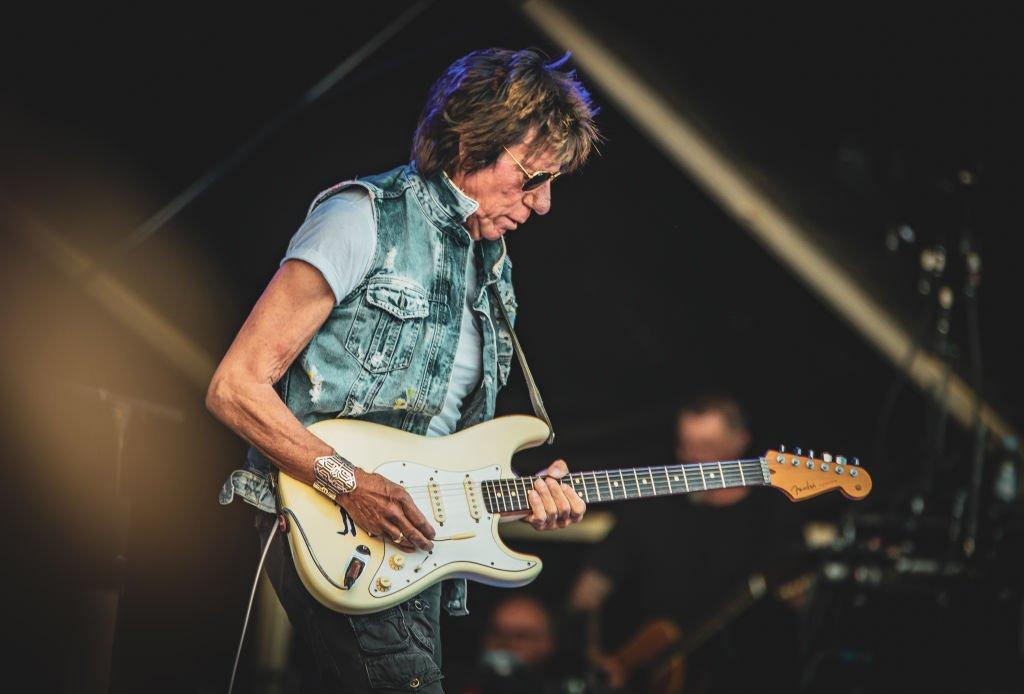
news
Remembering Jeff Beck: 5 Essential Tracks From The Guitar Wizard And Influential Innovator
Jeff Beck passed away on Jan. 11 at age 78. The virtuoso guitarist's soul, tone and techniques influenced generations of guitarists. His six-decade career netted eight GRAMMY Awards and many memorable songs.
Only 11 days into the new year and yet another rock elder has gone off to that great gig in the sky. The latest news came late Wednesday afternoon: Jeff Beck, 78, died peacefully after suddenly contracting bacterial meningitis.
Social media was immediately flooded with tributes from fellow guitar greats such as David Gilmour and Tony Iommi. In a tweet, Jimmy Page called Beck a "six stringed warrior" who "could channel music from the ethereal." In a short farewell posted via her Substack newsletter, Patti Smith described Beck as "quiet as moccasined feet, yet mercurial, innovative, impossible to categorize," and "a guitarist in the highest sense."
Beck remained an active musician until his passing. In 2022, he released 18 with actor Johnny Depp. He is featured on Ozzy Osbourne’s "Patient No. 9," which is nominated for Best Rock Song and Best Rock Performance at the 2023 GRAMMY Awards.
The British guitar slinger’s unique stylings and mastery of his instrument influenced generations of players. In 1965, on the advice of Page, Beck replaced Eric Clapton in the Yardbirds. Two years later, he left the electric blues band to form the Jeff Beck Group with Rod Stewart and a then unknown Ron Wood on bass. Their 1968 debut, Truth, showcased how Beck’s various influences — sprinklings of jazz and funk, mixed with rock and blues — could create a new sound that resembles what, today, we call hard rock or heavy metal. Back then, it was just known as the Jeff Beck sound.
Beck built his first guitar when he was still a teenager, and constantly found new tones and broke new ground on his beloved instrument. Through experimentation and constant exploration of what his instrument could do, the guitarist is credited with advancing feedback techniques, and incorporating distortion and bends into his playing. Blow by Blow, his second solo record, reached No. 4 on the Billboard charts and was his most commercially successful — selling more than one million copies.
Beck won eight GRAMMY Awards over the course of his nearly six-decade career and was twice inducted into the Rock and Roll Hall of Fame. Even as he approached his 80th year, Beck continued to quietly innovate. Here are five Essential Jeff Beck songs to honor this guitar great gone too soon.
"Scatterbrain" (1975)
The George Martin-produced "Scatterbrain" from his commercial breakthrough Blow by Blow, t is a co-write with keyboardist Max Middleton and a lively conversation between Beck’s guitar and Richard Bailey’s percussion.
Back in 1975, the year this song was released, wannabe guitar players sat in their bedrooms, listening to this 5-minute and 40-second epic song on their turntables on repeat and wondered how could they ever compare to such mastery. Many guitarists today, hearing "Scatterbrain" for the first time, have the same reaction.
"Cause We’ve Ended as Lovers" (1975)
Stevie Wonder originally wrote this song for his wife Syreeta, but passed it to Beck as an apology for releasing "Superstition" first. The sound of Beck’s Fender Telecaster is otherworldly as he plays with tone and technique to take you on a journey to unexplored territory. Close your eyes and listen to this mournful song, and try to focus on each riff and melodic shift. Nearly a half-century on, this Blow By Blow track still hits deep.
"Beck’s Bolero" (1967)
Beck's first hit was initially released as a single, then appeared on his solo debut Truth. The Jimmy Page-penned instrumental showcases his prowess playing a Les Paul and features future Led Zeppelin members Page (who played the rhythm guitar parts) and bassist John Paul Jones, along with the Who’s drummer Keith Moon.
"A Day in the Life" (1998)
The guitarist initially recorded this instrumental cover of the Beatles' beloved classic for the George Martin-produced tribute album In My Life. The song later appeared on Beck’s 2008 album Performing This Week: Live at Ronnie Scott’s Jazz Club and won Beck another GRAMMY for Best Rock Instrumental Performance. By adding tones and feelings that only a guitar in his hands could imagine, Beck yet again demonstrates how he can create unique interpretations nearly as memorable as their masterpiece originals.
"Hammerhead" (2010)
The song won a golden gramophone for Best Rock Instrumental Performance at the 53rd GRAMMY Awards — Beck’s fifth in this category, and third win at that year's ceremony. Taken from the album Emotion & Commotion, and inspired by composer and keyboardist Jan Hammer, this rocker is a nod to some of Beck's earliest compositions from the '70s. "Hammerhead" features plenty of wah-wah pedals, distortion, whammy-bar effects and other tricks. Turn it up.
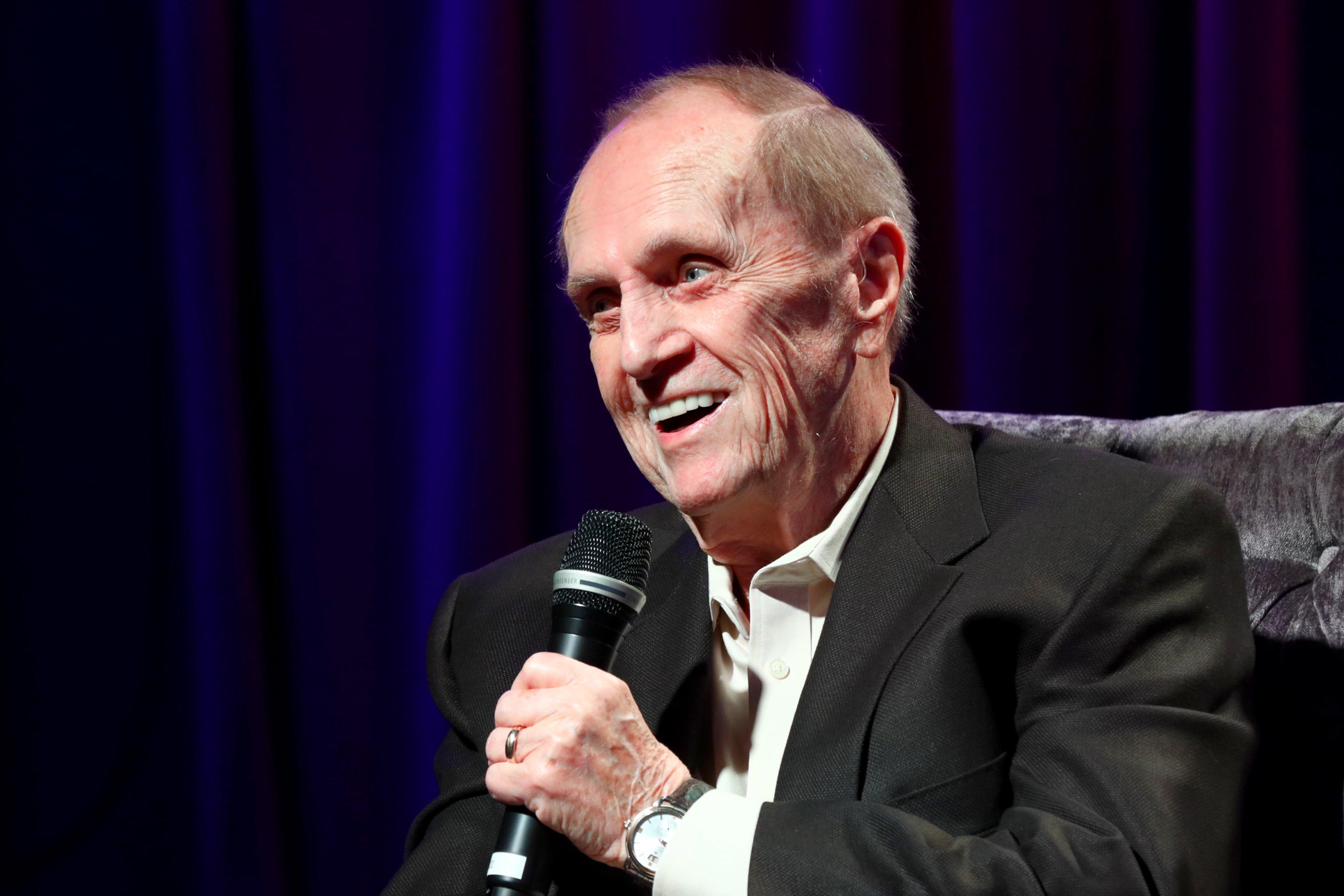
Photo: Rebecca Sapp/WireImage
news
Remembering Bob Newhart, The Comic Who Made GRAMMY History With His Debut Album
The legendary comic, whose work onstage and on screen spanned multiple generations, passed away at age 94 on July 18.
Bob Newhart, one of the most celebrated comedians of his generation and renowned for his deadpan delivery died at his home in Los Angeles on July 18. He was 94.
Awarded the John F. Kennedy Center for the Performing Arts’ Mark Twain Prize for American Humor in 2002, Newhart launched his career with a record-setting record. By the time he transitioned to television with two successful sitcoms, he had become a household name.
Newhart made his vinyl debut on April Fool’s Day in 1960, when Warner Brothers Records released his first comedy album, The Button-Down Mind of Bob Newhart. A year later, at the 3rd GRAMMY Awards, the former accountant-turned-comic took home three golden gramophones.
At the 1961 GRAMMYs, Newhart won Album Of The Year — beating out two classical albums as well as works by Nat King Cole, Frank Sinatra and Harry Belafonte. Newhart also won Best New Artist at that year's ceremony and, to this day, is the only comedian to win in both categories.
Recorded live on Feb. 10, 1960 at the Tidelands Motor Inn in Houston, Button Down Mind also became the first comedy audio album to reach No. 1 on the Billboard 200 chart. The album is widely considered to be one of the most consequential comedy albums of the 20th century and, fittingly, features the subtitle The Most Celebrated New Comedian Since Attila (the Hun).
The album was added to the Library of Congress’s National Recording Registry in 1960. That year, The New York Times noted that Newhart was “the first comedian in history to come to prominence through a recording.” In 2007, the Recording Academy inducted The Button-Down Mind of Bob Newhart into the GRAMMY Hall of Fame.
His second album, The Button-Down Mind Strikes Back!, similarly topped the Billboard charts and earned Newhart his third GRAMMY Award, this time for Best Comedy Performance — Spoken Word.
Newhart received two additional GRAMMY nods during this illustrious career: His Button Down Concert album was nominated for Best Spoken Comedy Album at the 40th GRAMMY Awards, and nine years later his I Shouldn't Even Be Doing This! was nominated for Best Spoken Word Album.a
The success of Button-Down Mind led to the launch of Newhart's long TV career. His NBC variety show, "The Bob Newhart Shot" only lasted one season, but earned an Emmy for Outstanding Comedy Series in 1962. Newhart found greater success through CBS, which broadcast a series of the same name. On the second "The Bob Newhart Show," which ran from 1972 to 1978, the comic actor played a psychologist,
Four years later, he followed up with another sitcom, "Newhart," which aired until 1990 and in which Newhart played a Vermont innkeeper.
Bob Newhart has continued to have a presence on the small screen. His recording debut has been referenced in a variety of contemporary period shows, including "Mad Men" and "The Marvelous Mrs. Maisel."
During his decades-long television career, Newhart received nine EMMY nominations, including as Outstanding Lead Actor in a Comedy Series over three consecutive years for "Newhart" and three for Outstanding Guest Actor in a Comedy Series for his appearances on CBS’ "The Big Bang Theory."
Born George Robert Newhart on Sept. 5, 1929, in Oak Park, Illinois, Newhart graduated from Loyola University of Chicago in 1952 with a degree in accounting. After serving in the Army during the Korean War, he returned to Loyola for law school, but dropped out and pursued office work.
Newhart worked as an accountant for United States Gypsum Corp., which manufactures construction materials, and later as a copywrighter for Fred Niles Films Company in Chicago. During that time, Newhart began recording "long, antic" phone calls with a friend as audition tapes for comedy jobs. They caught the attention of a Chicago disc jockey, who introduced Newhart to the head of talent at Warner Bros. Records and which led to a life-changing contract in 1959.
It was in the latter category that Newhart won his first and only Emmy in 2013, 20 years after the Academy of Television Arts and Sciences inducted him into its Hall of Fame.
Remembering Legends & History-Makers
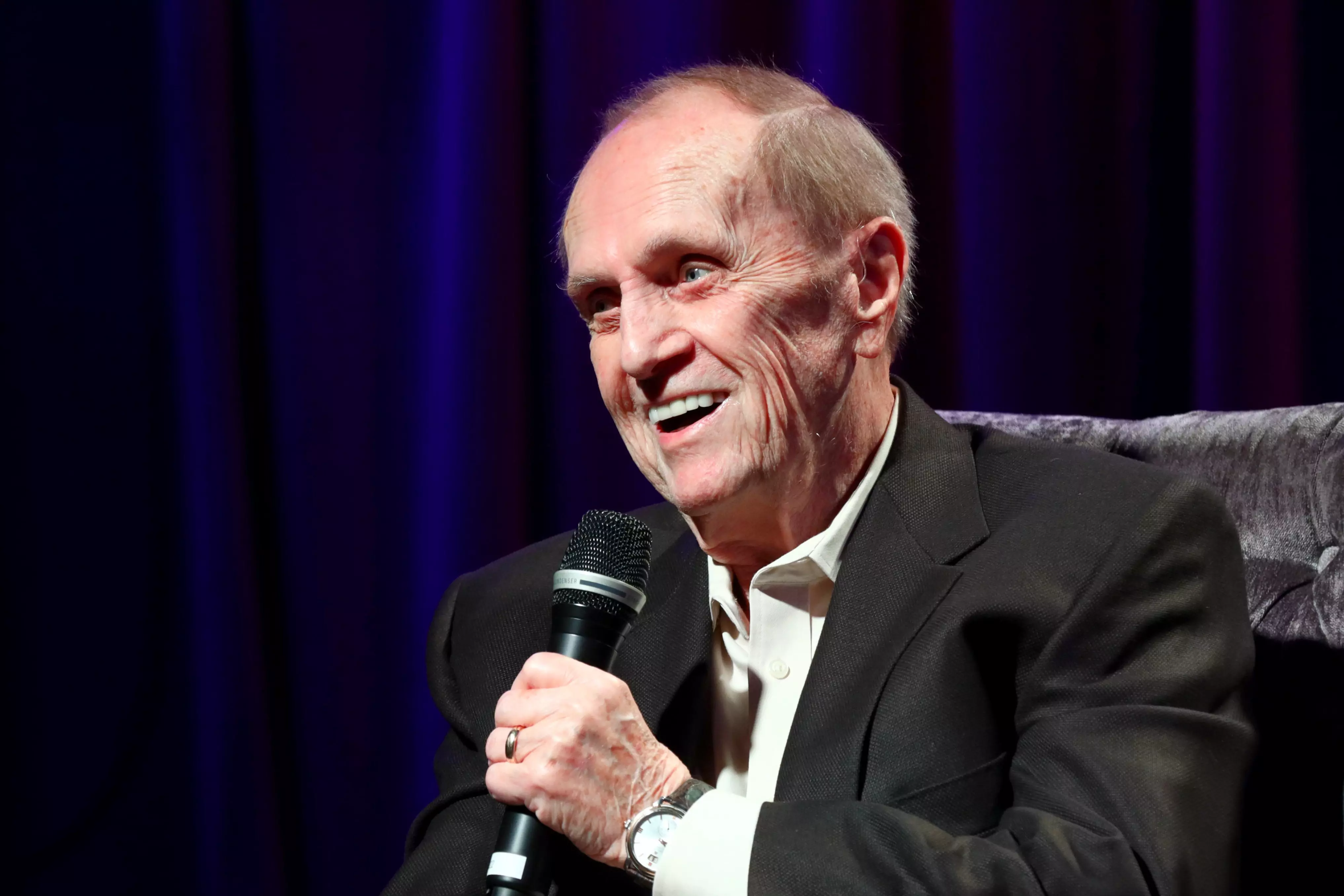
Remembering Bob Newhart, The Comic Who Made GRAMMY History With His Debut Album

2024 GRAMMYs In Memoriam: Stevie Wonder, Lenny Kravitz & More Pay Tribute To Late Icons
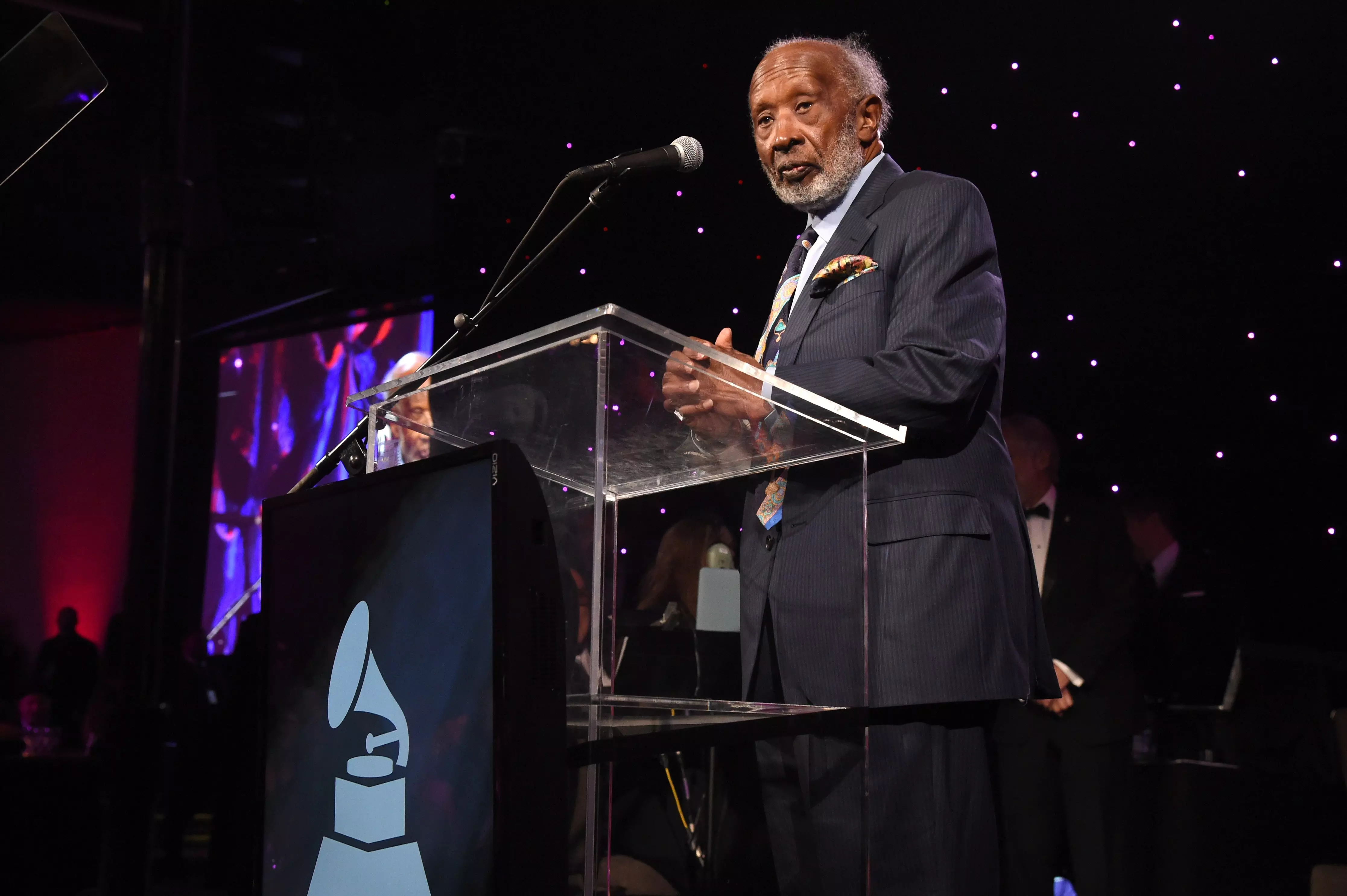
Remembering Clarence Avant: The Black Godfather, Renowned Entertainment Mentor & Recording Academy Honoree
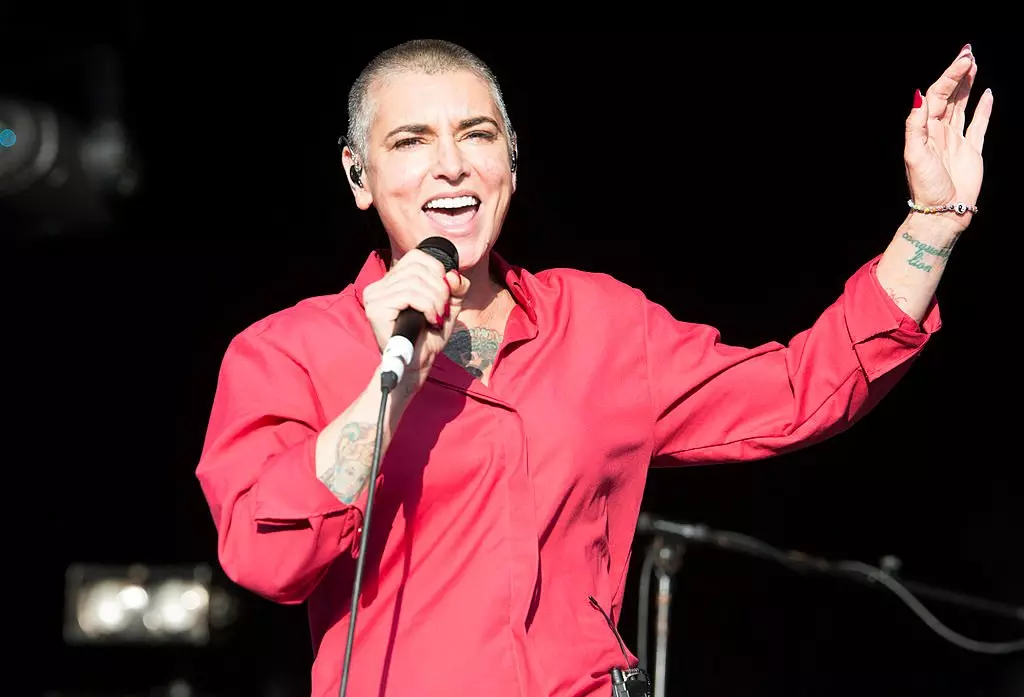
Remembering Sinéad O’Connor: 5 Essential Tracks By The Iconoclastic Singer/Songwriter
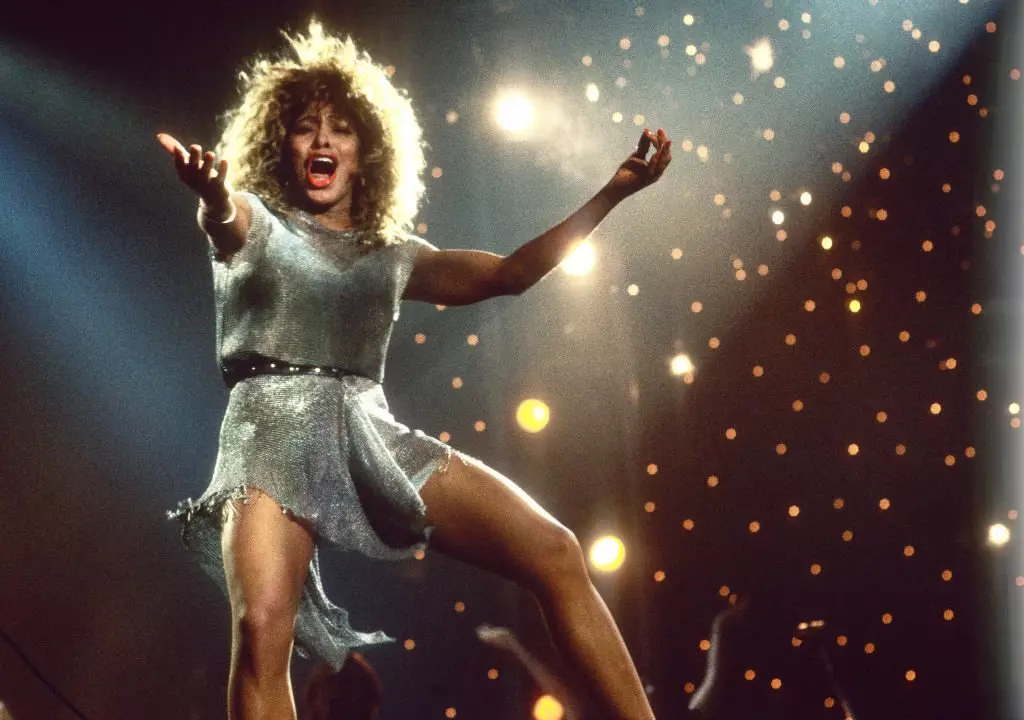
Remembering The Artistry Of Tina Turner, "The Epitome Of Power And Passion"

Photo: Aitor Laspiur
interview
Omar Apollo Embraces Heartbreak And Enters His "Zaddy" Era On 'God Said No'
Alongside producer Teo Halm, Omar Apollo discusses creating 'God Said No' in London, the role of poetry in the writing process, and eventually finding comfort in the record's "proof of pain."
"Honestly, I feel like a zaddy," Omar Apollo says with a roguish grin, "because I'm 6'5" so, like, you can run up in my arms and stay there, you know what I mean?"
As a bonafide R&B sensation and one of the internet’s favorite boyfriends, Apollo is likely used to the labels, attention and online swooning that come with modern fame. But in this instance, there’s a valid reason for asking about his particular brand of "zaddyhood": he’s been turned into a Bratz doll.
In the middle of June, the popular toy company blasted a video to its nearly 5 million social media followers showing off the singer as a real-life Bratz Boy — the plastic version draped in a long fur coat (shirtless, naturally), with a blinged-out cross necklace and matching silver earrings as he belts out his 2023 single "3 Boys" from a smoke-covered stage.
The video, which was captioned "Zaddy coded," promptly went viral, helped along by an amused Apollo reposting the clip to his own Instagram Story. "It was so funny," he adds. "And it's so accurate; that's literally how my shows go. It made me look so glamorous, I loved it."
The unexpected viral moment came with rather auspicious timing, considering Apollo is prepping for the release of his hotly anticipated sophomore album. God Said No arrives June 28 via Warner Records.
In fact, the star is so busy with the roll-out that, on the afternoon of our interview, he’s FaceTiming from the back of a car. The day prior, he’d filmed the music video for "Done With You," the album’s next single. Now he’s headed to the airport to jet off to Paris, where he’ll be photographed front row at the LOEWE SS25 men’s runway show in between Sabrina Carpenter and Mustafa — the latter of whom is one of the few collaborators featured on God Said No.
Apollo’s trusted co-writer and producer, Teo Halm, is also joining the conversation from his home studio in L.A. In between amassing credits for Beyoncé (The Lion King: The Gift), Rosalía and J Balvin (the Latin GRAMMY-winning "Con Altura"), SZA ("Notice Me" and "Open Arms" featuring Travis Scott) and others, the 25-year-old virtuoso behind the boards had teamed up with Apollo on multiple occasions. Notably, the two collabed on "Evergreen (You Didn’t Deserve Me At All)," which helped Apollo score his nomination for Best New Artist at the 2023 GRAMMYs.
In the wake of that triumph, Apollo doubled down on their creative chemistry by asking Halm to executive produce God Said No. (The producer is also quick to second his pal’s magnetic mystique: "Don't get it twisted, he's zaddy, for sure.")
Apollo bares his soul like never before across the album’s 14 tracks, as he processes the bitter end of a two-year relationship with an unnamed paramour. The resulting portrait of heartbreak is a new level of emotional exposure for a singer already known for his unguarded vulnerability and naked candor. (He commissioned artist Doron Langberg to paint a revealing portrait of him for the cover of his 2023 EP Live For Me, and unapologetically included a painting of his erect penis as the back cover of the vinyl release.)
On lead single "Spite," he’s pulled between longing and resentment in the wake of the break-up over a bouncing guitar riff. Second single "Dispose of Me" finds Apollo heartsick and feeling abandoned as he laments, "It don’t matter if it’s 25 years, 25 months/ It don’t matter if it’s 25 days, it was real love/ We got too much history/ So don’t just dispose of me."
Elsewhere, the singer offers the stunning admission that "I would’ve married you" on album cut "Life’s Unfair." Then, on the very next song — the bumping, braggadocious "Against Me" — Apollo grapples with the reality that he’s been permanently altered by the love affair while on the prowl for a rebound. "I cannot act like I’m average/ You know that I am the baddest bitch," he proclaims on the opening verse, only to later admit, "I’ve changed so much, but have you heard?/ I can’t move how I used to."
More Omar Apollo News & Videos

Omar Apollo Embraces Heartbreak And Enters His "Zaddy" Era On 'God Said No'

How Danna Paola Created 'CHILDSTAR' By Deconstructing Herself

On Omar Apollo's New EP 'Live for Me,’ Limitless Experimentation Created Catharsis

Listen To GRAMMY.com's LGBTQIA+ Pride Month 2023 Playlist Featuring Demi Lovato, Sam Smith, Kim Petras, Frank Ocean, Omar Apollo & More

Omar Apollo On “Evergreen,” Growth & Longing
Given the personal subject matter filling God Said No — not to mention the amount of acclaim he earned with Ivory — it would be understandable if Apollo felt a degree of pressure or anxiety when it came to crafting his sophomore studio set. But according to the singer, that was entirely not the case.
"I feel like I wouldn’t be able to make art if I felt pressure," he says. "Why would I be nervous about going back and making more music? If anything, I'm more excited and my mind is opened up in a whole other way and I've learned so much."
In order to throw his entire focus into the album’s creation, Apollo invited Halm to join him in London. The duo set up shop in the famous Abbey Road Studios, where the singer often spent 12- to 13-hour days attempting to exorcize his heartbreak fueled by a steady stream of Aperol spritzes and cigarettes.
The change of scenery infused the music with new sonic possibilities, like the kinetic synths and pulsating bass line that set flight to "Less of You." Apollo and Halm agree that the single was directly inspired by London’s unique energy.
"It's so funny because we were out there in London, but we weren't poppin' out at all," the Halm says. "Our London scene was really just, like, studio, food. Omar was a frickin' beast. He was hitting the gym every day…. But it was more like feeding off the culture on a day-to-day basis. Like, literally just on the walk to the studio or something as simple as getting a little coffee. I don't think that song would've happened in L.A."
Poetry played a surprisingly vital role in the album’s creation as well, with Apollo littering the studio with collections by "all of the greats," including the likes of Ocean Vuong, Victoria Chang, Philip Larkin, Alan Ginsberg, Mary Oliver and more.
"Could you imagine making films, but never watching a film?" the singer posits, turning his appreciation for the written art form into a metaphor about cinema. "Imagine if I never saw [films by] the greats, the beauty of words and language, and how it's manipulated and how it flows. So I was so inspired."
Perhaps a natural result of consuming so much poetic prose, Apollo was also led to experiment with his own writing style. While on a day trip with his parents to the Palace of Versailles, he wrote a poem that ultimately became the soaring album highlight "Plane Trees," which sends the singer’s voice to new, shiver-inducing heights.
"I'd been telling Teo that I wanted to challenge myself vocally and do a power ballad," he says. "But it wasn't coming and we had attempted those songs before. And I was exhausted with writing about love; I was so sick of it. I was like, Argh, I don't want to write anymore songs with this person in my mind."
Instead, the GRAMMY nominee sat on the palace grounds with his parents, listening to his mom tell stories about her childhood spent in Mexico. He challenged himself to write about the majestic plane tree they were sitting under in order to capture the special moment.
Back at the studio, Apollo’s dad asked Halm to simply "make a beat" and, soon enough, the singer was setting his poem to music. (Later, Mustafa’s hushed coda perfected the song’s denouement as the final piece of the puzzle.) And if Apollo’s dad is at least partially responsible for how "Plane Trees" turned out, his mom can take some credit for a different song on the album — that’s her voice, recorded beneath the same plane tree, on the outro of delicate closer "Glow."
Both the artist and the producer ward off any lingering expectations that a happy ending will arrive by the time "Glow" fades to black, however. "The music that we make walks a tightrope of balancing beauty and tragedy," Halm says. "It's always got this optimism in it, but it's never just, like, one-stop shop happy. It's always got this inevitable pain that just life has.
"You know, even if maybe there wasn't peace in the end for Omar, or if that wasn't his full journey with getting through that pain, I think a lot of people are dealing with broken hearts who it really is going to help," the producer continues. "I can only just hope that the music imparts leaving people with hope."
Apollo agrees that God Said No contains a "hopeful thread," even if his perspective on the project remains achingly visceral. Did making the album help heal his broken heart? "No," he says with a sad smile on his face. "But it is proof of pain. And it’s a beautiful thing that is immortalized now, forever.
"One day, I can look back at it and be like, Wow, what a beautiful thing I experienced. But yeah, no, it didn't help me," he says with a laugh.
Latest News & Exclusive Videos

2024 Paris Olympics Opening Ceremony: Watch Celine Dion, Lady Gaga, Gojira & More Perform

Ice Spice Is The Drill Queen On 'Y2K!': 5 Takeaways From Her Debut Album

New Music Friday: Listen To New Songs From Halsey, MGK And Jelly Roll, XG & More

Watch Young MC Win Best Rap Performance In 1990

The Red Clay Strays Offer A New Kind Of Religion With 'Made By These Moments'

Photo: JC Olivera/WireImage
news
2024 GRAMMYs In Memoriam: Stevie Wonder, Lenny Kravitz & More Pay Tribute To Late Icons
A star-studded tribute honored the late leading lights of the music industry. In a heartfelt and exciting segment, Tina Turner was remembered with a spirited cover of "Proud Mary" and while Stevie Wonder did a tender posthumous duet with Tony Bennett.
Oprah Winfrey, Stevie Wonder and more graced the GRAMMYs stage for a star-studded tribute to Tina Turner, Tony Bennett and other stars we lost in 2023.
The In Memoriam segment of the 2024 GRAMMYs began with Wonder honoring the "I Left My Heart in San Francisco" crooner, who passed away in July after a long battle with Alzheimer's. With Wonder on piano and an ethereal, archival video of Bennett singing, the two created a tearjerker posthumous duet of "For Once in My Life" before transitioning into "The Best is Yet to Come."
Next, a video memorialized Jimmy Buffett before a visibly emotional Annie Lennox appeared on stage with Wendy and Lisa to remember Sinead O'Connor with a tender cover of the late Irish alt pioneer's classic single "Nothing Compares 2 U." "Artists for ceasefire! Peace in the world!" the Eurythmics icon shouted with raised fist at the end of her performance.
Elsewhere during the In Memoriam package, Burt Bacharach was celebrated for his unmistakable impact on popular music throughout the 20th century. Then, Lenny Kravitz paid respect to Clarence Avant as the "Godfather of Black Music" with a tribute that included a performance of "Ain't No Sunshine" and "Lean on Me" by Jon Batiste. Ann Nesby, Jimmy Jam, Terry Lewis and others joined later to perform "Optimistic."
Read more: Remembering The Artistry Of Tina Turner, "The Epitome Of Power And Passion"
Last but certainly not least, Oprah Winfrey ushered in a tribute to Turner, saying "Tina Turner was always a towering figure. She is our forever goddess of rock and roll who inspired millions, a moving symbol of grace and grit, soul and power…And as those big wheels of time keep on turnin’, Tina’s voice continues to speak to all of us."
Following her remarks lionizing the Queen of Rock 'n Roll and nine-time GRAMMY winner, Oprah ceded the stage to Fantasia Barrino for a transcendent, celebratory performance (with much dancing, as Turner would have wanted) of "Proud Mary" that went from the stage to the audience and back.
2024 GRAMMY Nominations: See The Full Winners & Nominees List
.jpg)
Photo: Michael Kovac/Getty Images for The Recording Academy
video
GRAMMY Rewind: Watch Beyoncé's Heartfelt Speech For Her Record-Breaking Win In 2023
Relive the night Beyoncé received a gramophone for Best Dance/Electronic Album for 'RENAISSANCE' at the 2023 GRAMMYS — the award that made her the most decorated musician in GRAMMY history.
Six years after her last solo studio album, Beyoncé returned to the music industry with a bang thanks to RENAISSANCE. In homage to her late Uncle Johnny, she created a work of art inspired by the sounds of disco and house that wasn't just culturally impactful — it was history-making.
At the 2023 GRAMMYs, RENAISSANCE won Best Dance/Electronic Album. Marking Beyoncé's 32nd golden gramophone, the win gave the superstar the record for most gramophones won by an individual act.
In this episode of GRAMMY Rewind, revisit the historic moment Queen Bey took the stage to accept her record-breaking GRAMMY at the 65th Annual GRAMMY Awards.
"Thank you so much. I'm trying not to be too emotional," Beyoncé said at the start of her acceptance speech. "I'm just trying to receive this night."
With a deep breath, she began to list her praises that included God, her family, and the Recording Academy for their continued support throughout her career.
"I'd like to thank my Uncle Johnny, who is not here, but he's here in spirit," Beyoncé proclaimed. "I'd like to thank the queer community for your love and inventing this genre."
Watch the video above for Beyoncé's full speech for Best Dance/Electronic Album at the 2023 GRAMMYs. Check back to GRAMMY.com for more new episodes of GRAMMY Rewind.
Tune into the 2024 GRAMMYs on Sunday, Feb. 4, airing live on the CBS Television Network (8-11:30 p.m. LIVE ET/5-8:30 p.m. LIVE PT) and streaming on Paramount+ (live and on-demand for Paramount+ with SHOWTIME subscribers, or on-demand for Paramount+ Essential subscribers the day after the special airs).
